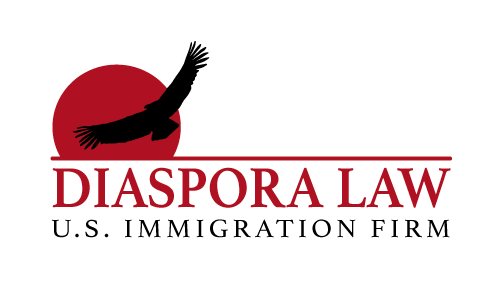Determining if you are eligible to get a Green Card, and the process to get a Green Card can seem like a daunting task. Hopefully, these blog posts can give you some assistance and clarity about your eligibility for a Green Card. Determining if you are eligible for a Green Card is dependent on how you first came to the United States. Below you will find information about eligibility for a Green card depending on how you entered the United States. The eligibility categories are separated into the following categories: Asylum or Withholding of Removal, Non-Immigrant Visa, Immigrant Visa, and USCIS categories. All of these categories are subject to statutory exceptions and limitations. Please contact our office for questions related to qualifying for a Green Card.
USCIS Family Category
One way of obtaining a Green Card is if you have a U.S. citizen relative. Such qualifying relatives include immediate relatives who are citizens, another relative who are citizens of Lawful Permanent Residents (LPR’s), fiancés, widows and widowers, and spouses of U.S. citizens who have been abused. An immediate relative who is a U.S. citizen includes spouses, unmarried children under the age of 21, and a child who is 21 or over. Other relatives who are citizens include your unmarried U.S. citizen son or daughter, your married U.S. citizen son or daughter, and brother or sister. Other relatives who are Lawful Permanent Residents include spouses that are LPR’s, unmarried children under the age of 21 who are LPR’s, and unmarried children who are 21 or over. To be considered a fiancé or child of a fiancé, for this purpose, you have to be admitted to the U.S. on or qualify for a K-1 or K-2 Non-Immigrant Visa. If you are the Widow or Widower of a U.S. citizen or are the abused spouse, an abused child, or abuse parent of a U.S. citizen you qualify in the family category for a Green Card.
USCIS Employment Category
Gaining a Green card through employment depends on what category you fall into. The categories are divided into three different types of Immigrant Worker categories, a Physician National Interest Waiver category, and the Immigrant Investor category.
The first preference Immigrant worker category applies to those who have an extraordinary ability in the sciences, arts, education, business, athletics, as well as outstanding professors or researchers, and a multinational manager or executive who meets certain criteria. To demonstrate that you are a person of one of the above professions with extraordinary ability, you must provide a variety of evidence to demonstrate your ability. Such evidence you should be prepared to provide are outstanding achievements ranging from a Nobel Prize to another in national or international prizes; recognition in your field such as publications in journals related to your field; command for a high salary: lead or critical role if you are a performer; and other such evidence that further demonstrates your extraordinary ability. The evidence you can provide will determine if you fall into this category. To further evaluate if you qualify as someone with extraordinary ability, click here for further information and contact our office so we can further evaluate your case.
The second preference Immigrant worker employment category applies to those with an advanced degree or exceptional ability. To qualify as a person with an advanced degree, you must have a degree higher than a bachelor’s degree, or a bachelor’s degree and five or more years of experience in the field. Exceptional ability “means a degree of expertise significantly above that ordinarily encountered in the sciences, arts, or business.” Documentation needed to demonstrate an advanced degree or exceptional ability includes academic record and letter from your current or former employer showing at least five years of experience. All second preference categories require a Labor certification. For further questions and an evaluation of your case, please contact our office.
The third preference Immigration worker category is divided into skilled workers, professionals, and other workers categories. Skilled workers are those with at least two years of job experience or training, or you must be able to perform work that qualified workers are not available to do in the United States. Professionals are considered those who possess a U.S. Baccalaureate degree or foreign equivalent. Unskilled workers are those who perform work that requires less than two years of training. Unskilled workers must be capable, at the time they petition, to perform the unskilled labor for which there are no United States workers available, and the labor cannot be seasonal or temporary. All of these subcategories require a Labor Certification and a permanent full-time job offer. For further evaluation of your case, please contact our office.
Asylum and Withholding
Asylum is a means of seeking refuge in the United States because you were and are afraid of being subject to persecution in your home country because of your religion, race, nationality, membership to a particular social group or political opinion. If you believe that you qualify for asylum, then there are two opportunities for you to request asylum from the United States. You can affirmatively seek asylum by presenting yourself before the government knows you are in the United States and requesting asylum. The other option is to defensively seek asylum by claiming you qualify for asylum as a defense to a deportation proceeding. Regardless of how you request asylum, you will need to pass a credible fear interview where an Immigration officer will discuss your case with you and make a decision about whether or not you qualify for asylum.
If you do not qualify for asylum, but returning to your home country your freedom would be threatened because of your race, religion, nationality, membership to a particular social group, or political opinion you could obtain withholding of removal. If you are granted withholding of removal, then that means you will not be returned to your home country, but it is not a guarantee that would be able to stay in the United States for an extended period. The period you are allowed in the United States is dependent on how long an immigration officer believes your home country remains unsafe for you to return. For questions about asylum, withholding of removal, and further evaluation of your case, please contact our office.






